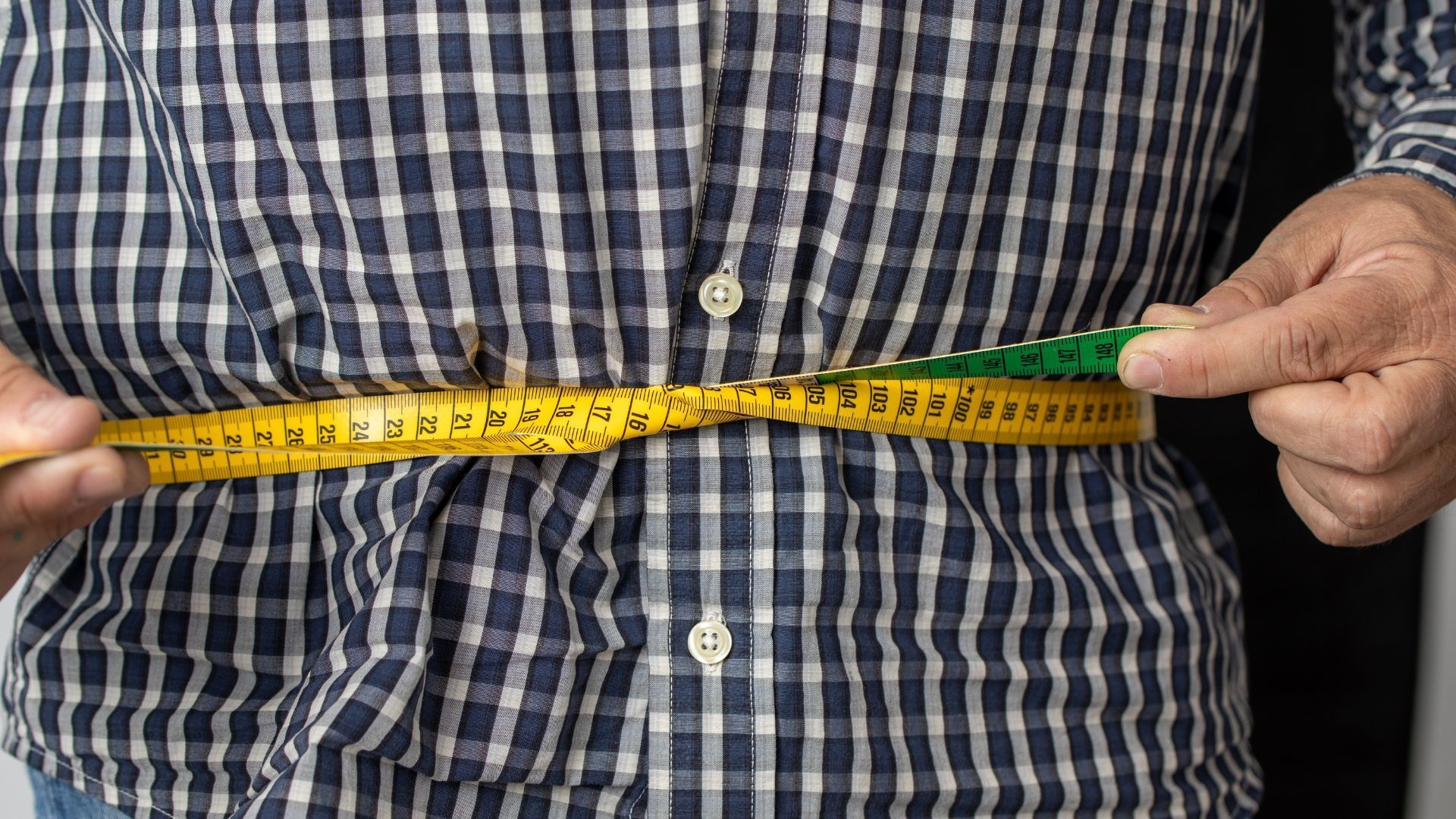Can weight loss affect my period?
Can weight loss affect periods? Learn how losing weight can impact your monthly cycle and menstrual health.

It can be reassuring to get your period on time every month – it's a big green flag when it comes to your overall health. So, when your cycle falls out of sync, we understand that it might be concerning.
Many things can affect your menstrual cycle, including weight loss. That's because weight is closely tied to hormones and ovulation.
For some people, especially those living with obesity or polycystic ovary syndrome (PCOS), gradual weight loss can help restore regular cycles. However, if you lose weight quickly or use extreme methods like crash diets, you may find your periods become irregular or lighter. They might even stop completely.
This guide should help you understand the link between weight loss and menstruation. It covers:
- How weight and hormones interact
- How weight loss can affect your cycle
- When to seek medical advice.
We also take you through some safe and sustainable ways to lose weight and help safeguard your menstrual health.
How weight and hormones are linked
Your menstrual cycle is regulated by a finely balanced network of hormones. These include:
- Oestrogen
- Progesterone
- Luteinising hormone (LH)
- Follicle-stimulating hormone (FSH)
Body fat also plays a big role in hormone regulation by helping your body produce oestrogen. Too much or too little body fat can disrupt ovulation and your natural cycle. And losing weight quickly or doing too much exercise can stop or delay your periods.
If you're living with obesity or PCOS, you may have higher insulin levels and raised androgens. These can also interfere with ovulation.
Healthy, sustainable weight loss can improve these markers and help your cycle settle. NHS guidance on PCOS notes that modest weight loss of just 5% can improve PCOS symptoms and reduce longer-term risks.¹ In turn, this could also help your periods become more regular.
Can weight loss change your period?
Yes. For many people living with obesity or PCOS, gradual weight loss can make cycles more regular and sometimes lighter or less painful.
On the other hand, losing weight too quickly can lead to cycles that are shorter, lighter, farther apart or irregular.
If your usual pattern changes or you're worried about symptoms, you should speak to your GP or a weight loss specialist.
Can weight loss stop your period?
It certainly can. Missing periods for several months after weight loss may be due to a condition called 'hypothalamic amenorrhoea'.
This happens when the brain reduces hormonal signals to the ovaries in response to low energy availability, rapid weight loss or extreme exercise.
You should seek medical advice if you miss three periods in a row. Some research links long-term oestrogen deficiency with bone health risks,² so it's worth addressing early.
Can weight loss cause irregular periods?
Yes, especially in the short term. As weight and hormones shift, your cycle may become irregular in the early stage of your weight loss journey before it settles.
What supports a healthy period while losing weight?
Healthy lifestyle changes can go a long way to maintaining good menstrual health.

Aim for a balanced, lower-energy diet with plenty of nutrients and enough protein and fibre to keep you feeling full. It's also good to stay active by adding regular activity to your day and building it up gradually.
You don't need to go from sitting on the sofa to running a 10K in the same week. Starting with a short, brisk walk each day could make a big difference.
Gentle lifestyle changes like these support insulin sensitivity and make losing weight more sustainable.
Note: if you have asthma, PCOS, thyroid disease or other conditions, speak to your healthcare provider about creating a tailored exercise plan.
Medications that support weight loss
The following medicines are not designed to help with your periods. However, they support weight loss, which can indirectly help regulate your cycle.
- Orlistat reduces the amount of fat you absorb from your diet. It can help you lose a small amount of weight (about 3% more than diet and exercise alone). Orlistat is available over the counter and on prescription.
- Semaglutide (Wegovy) is a prescription drug that helps regulate blood sugar and control hunger and food cravings. It's taken as a once-weekly injection. A large clinical trial showed average weight loss of 14.9% when Wegovy was taken alongside healthy lifestyle changes.
- Tirzepatide (Mounjaro) is another prescription drug that works similarly to Wegovy. It's also taken as a once-weekly injection. In a large trial, Mounjaro users saw an average weight loss of 20.9% when taking the drug alongside healthy lifestyle changes.
When to seek medical advice
It's important to speak to your GP or healthcare provider if:
- You miss three periods in a row
- Your periods have stopped after weight loss or heavy training
- You have very heavy bleeding, severe pain or new symptoms
- You're trying to conceive, but your cycles remain irregular
The bottom line
Many people living with obesity experience irregular periods – and losing weight sustainably can often help promote healthy periods and ovulation.
For some, however, periods may become irregular or stop entirely. This is especially common if a person loses weight too quickly.
The goal is steady progress. This can be achieved through eating enough nutritious foods, exercising regularly and accessing the right medical support if you need it.
And remember: if you live with PCOS, even modest weight loss can improve symptoms.
SemaPen: safe, professional weight loss support
Are you struggling to get help through the NHS, or want to go private? Here at SemaPen, we provide regulated, expert-led medical weight loss plans that are tailored to you.
Your journey starts with a simple online consultation. If we think a GLP-1 treatment could help you, we'll issue a private prescription and build a Wegovy or Mounjouro programme to suit your unique needs.
Our comprehensive plans include progress reviews, nutrition guidance, compassionate support and smart scale monitoring so you can track changes clearly with our team. We also help manage your dosing to keep you on track.
Ready to move forward? It's easy to start your SemaPen assessment today. Our team of experts will help you choose the right next step and support you throughout your weight loss journey.
Sources
1. NHS (2022) Treatment: Polycystic ovary syndrome. Retrieved from https://www.nhs.uk/conditions/polycystic-ovary-syndrome-pcos/treatment/
2. Shufelt, C.L. et al. (2017) "Hypothalamic Amenorrhea and the Long-Term Health Consequences" Seminars in Reproductive Medicine, 35(3) https://doi.org/10.1055/s-0037-1603581
3. Drew, S.B. et al. (2007) "Obesity management: Update on orlistat" Vascular Health and Risk Management, 3(6) https://pmc.ncbi.nlm.nih.gov/articles/PMC2350121/
4. Wilding, J.P.H. et al. (2021) "Once-weekly semaglutide in adults with overweight or obesity" The New England Journal of Medicine, 384(11) https://doi.org/10.1056/NEJMoa2032183
5. Jastreboff, A.M. et al. (2022) "Tirzepatide Once Weekly for the Treatment of Obesity" The New England Journal of Medicine, 387(3) https://doi.org/10.1056/NEJMoa2206038
6. NHS (2022) Irregular periods. Retrieved from https://www.nhs.uk/symptoms/irregular-periods/
This article was reviewed and approved by Alice Fletcher, Lead Bariatric Dietitian, on 3 September 2025.
- Average 15–21% weight loss
- Trusted programmes built by UK experts
- Personalised advice and support
- Smart weight loss app to track progress and learn positive habits
Your journey starts in the app
Unlock tailored support, weight tracking and more.
1
Download the free app
2
Take your digital consultation
3
Start your programme












